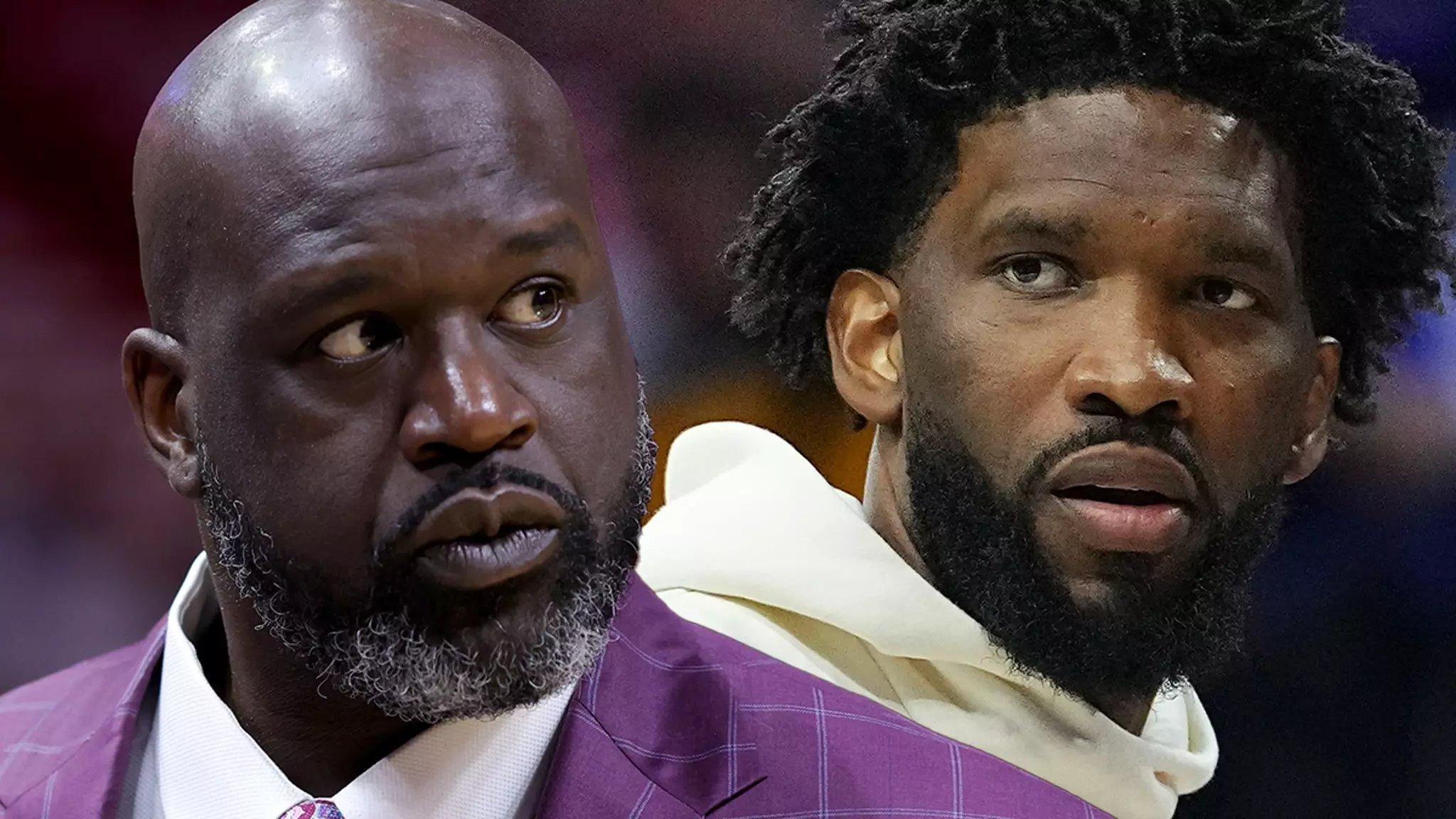In the competitive realm of professional basketball, where legends are forged and histories are written, work ethic and dedication to the game form the backbone of a player’s legacy. Recently, the basketball world was stirred by Shaquille O’Neal’s public admonishment of 76ers star Joel Embiid, accusing him of being “soft” for his reluctance to participate in back-to-back games. Such criticism, especially from a four-time NBA champion and one of the greatest centers in the sport’s history, speaks volumes about the high bar set for today’s athletes.
Shaq’s frustration stems from Embiid’s pre-season comments regarding his intent to minimize back-to-back game appearances, expressing a broader concern that this mindset contradicts the fierce competitive spirit that defines elite athletes. At 30 years old, Embiid’s hesitation raises eyebrows, particularly when juxtaposed with O’Neal’s relentless pursuit of excellence throughout his career, something he made clear when he asserted, “You have to want to be that guy.” This ideal of placing team and personal ambition above all else is a notion that resonates deeply with the fans and players alike.
The Implications of Player Rest in the NBA
Embiid’s decision to sit out several games, including the highly anticipated season opener against the Milwaukee Bucks, adds another layer to this contentious discussion. With the NBA ushering in policies aimed at preventing teams from resting healthy players, a careful balance between player longevity and team responsibility comes into play. O’Neal called attention to this very concern, reflecting a broader sentiment shared among fans who crave consistent performances from star players.
In Embiid’s case, he missed significant preseason action due to what the team described as left knee injury management. Despite this, his extraordinary talent was showcased last season when he scored an astounding 70 points in a game—a feat that O’Neal highlighted to question Embiid’s commitment to performance. Shaq’s assertion—that if a player can exert such dominance when motivated, he should strive for higher averages—mirrors the tough-love approach emblematic of old-school basketball values.
Legacy, Longevity, and the Essence of Greatness
The crux of this debate is the essence of greatness in sports, especially within a league that glorifies star power. Many players, including O’Neal, played through injuries and fatigue, driven by a desire to cement their status as unparalleled competitors. In contrast, Embiid’s cautious approach raises questions about the message it sends to younger athletes about the importance of resilience.
Furthermore, Shaq’s influence on the game extends beyond statistics, marking him as a cultural icon who embraced every challenge with tenacity. His remarks not only challenge Embiid’s current habits but also serve as a clarion call for future players, urging them to embrace the rigorous demands and responsibilities of being a superstar.
In light of this ongoing discussion, it is evident that the dynamics of player participation and health management will continue to evolve. As the NBA grapples with these complex issues, the dialogue surrounding player accountability, legacy, and the will to compete will remain at the forefront of fans’ minds and media scrutiny. Shaquille O’Neal’s candid critique of Joel Embiid serves not just as a personal attack but as an industry-wide reflection on the expectations placed on the next generation of elite basketball players.

